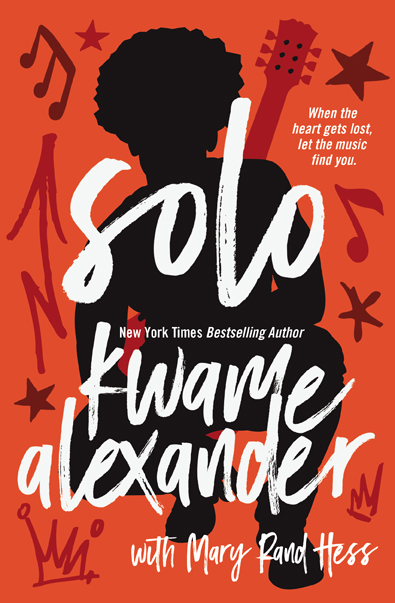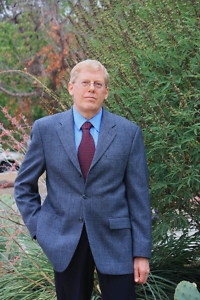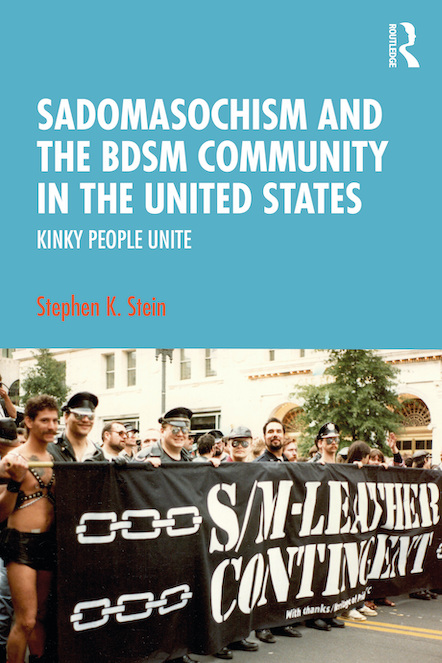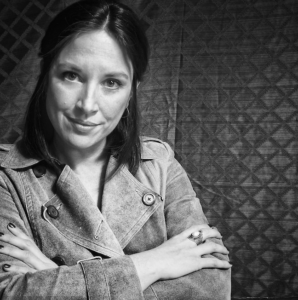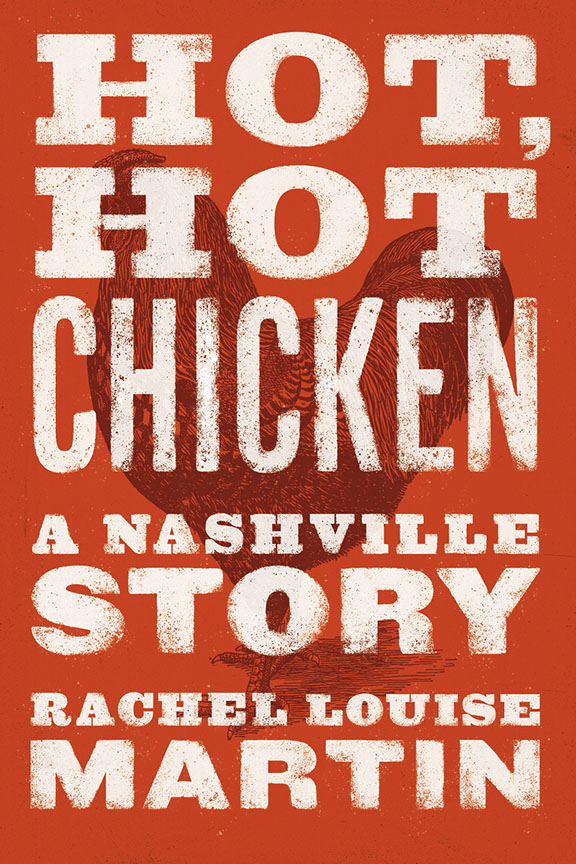Quick Wit
Novelist Matthew Quick talks with Chapter 16 about teachers, humor, Hollywood, and his new book, Love May Fail
In Matthew Quick’s new novel, Love May Fail, Portia Kane wonders whether people really “go back and thank their teachers years later, when they’re no longer handicapped by youth and ignorance, when they figure out just how much their teachers actually did for them.” For the rest of the novel, the sixth from the author of The Silver Linings Playbook, she does exactly that: thank an influential high-school teacher who has fallen on hard times.
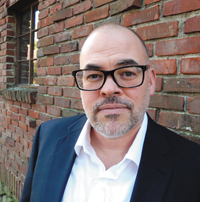 Within the Matthew Quick universe, it’s a given that pupil and teacher alike are fundamentally damaged—she by a failed marriage and difficult childhood, he by a savage classroom attack that ended his career—and that they will help each other toward some form of redemption. Quick’s work resonates with damage and redemption, delivered in a humorous and disarmingly frank prose style that fans—and filmmakers—adore, prompting The Hollywood Reporter to name him one of the 25 Most Powerful Authors in the film industry.
Within the Matthew Quick universe, it’s a given that pupil and teacher alike are fundamentally damaged—she by a failed marriage and difficult childhood, he by a savage classroom attack that ended his career—and that they will help each other toward some form of redemption. Quick’s work resonates with damage and redemption, delivered in a humorous and disarmingly frank prose style that fans—and filmmakers—adore, prompting The Hollywood Reporter to name him one of the 25 Most Powerful Authors in the film industry.
In advance of his appearance at Parnassus Books in Nashville, Quick recently answered questions from Chapter 16 via email:
Chapter 16: You’re a former high-school teacher yourself. Do you ever miss the classroom and daily contact with students and their struggles?
Matthew Quick: I do miss working with young people, mostly because they’re still excited and hopeful and eager to live life. We adults usually have accrued more hits, more damage, and as a result we tend to be less open to possibility. Being around young people keeps you young at heart—it’s true. I particularly miss coaching. I do not miss interacting with parents. And public-school politics are enough to make even the best of us pessimistic. If you care, teaching is exhausting. I’ve never worked harder for less money, and I used to roof for ten dollars an hour. We need to pay teachers more and give them the tools they need to make a real change. The problem is no one really wants real change. We want cheaper property taxes and to feel superior to teachers.
Chapter 16: This is your second novel to feature a female protagonist. Any special challenges in writing across gender?
Quick: To quote Depeche Mode, “people are people.” Each character—regardless of gender—has a certain uniqueness that a writer needs to capture. I try to inhabit a character’s mind and allow him or her to be fully realized on the page. Period. I’m often surprised when people make a big deal about writing the opposite gender. I really don’t think about it all that much. Although I do have many women edit the work, of course. I just don’t subscribe to the whole women are from a different planet theory. We all live on our own little planets, regardless of gender.
Chapter 16: Your books are full of tragedy, of people dealing with serious issues and heavy stuff, yet they frequently manage to be laugh-out-loud funny. How to do you so consistently balance humor and pain? Does it come naturally?
Quick: I love to make people laugh. For me, balancing humor and pain comes out of necessity. As someone who struggles with depression and anxiety I learned a long time ago that a proper laugh heals. Right out of college I worked with teens diagnosed with severe autism. Most of my students were nonverbal and their behavior-therapy plans targeted biting, hitting, and fecal smearing. We had to implement restraints, which often led to battles that could last hours. At eight dollars an hour, the turnover was high.
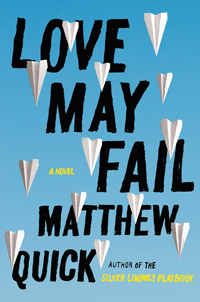 Whenever we got a new staff member we’d watch to see if he or she laughed during the day. Not at our students, for whom we all cared deeply, but at the absurdity of our daily workday. If new staff members laughed in a good way at least once, we knew they’d be back. If they didn’t laugh we often didn’t see them ever again. As a writer I try to mine the absurdity of life for comedy. It does a lot for my own mental health. I always tell my wife, if I’m laughing a lot during the writing, I’ll always finish the project.
Whenever we got a new staff member we’d watch to see if he or she laughed during the day. Not at our students, for whom we all cared deeply, but at the absurdity of our daily workday. If new staff members laughed in a good way at least once, we knew they’d be back. If they didn’t laugh we often didn’t see them ever again. As a writer I try to mine the absurdity of life for comedy. It does a lot for my own mental health. I always tell my wife, if I’m laughing a lot during the writing, I’ll always finish the project.
Chapter 16: Many of your characters struggle with mental-health issues. In this novel, Portia’s mother is, among other things, a hoarder of the highest order. Any thoughts on why mental illness is so fascinating to writers—and readers?
Quick: It’s a universal issue. When I published Silver Linings and officially came out as a person who struggles with depression and anxiety, suddenly everyone wanted to tell me about well-hidden personal struggles or a family member whose mental-health struggle had previously been taboo. Pat Peoples’s story gave us permission to talk. And sometimes that’s all we really need—permission. Many people struggle with or support someone who is suffering from mental-health issues. Whether we’re open and honest about that is another story. Writing about mental-health-related issues has been personally cathartic and freeing. Almost all of my favorite writers struggled—many quite famously—with depression. That’s why their work is so interesting to me. Literature lets me know that I’m not alone. If my work can do the same for others in need, I’m all for it.
Chapter 16: You left your day job, struggled to make ends meet while taking graduate writing classes, and then produced a highly acclaimed novel that was made into an Oscar-winning film. In some ways, you could be a poster child for the value of an M.F.A. degree. What role would you say grad school played in shaping you as a writer?
Quick: (Takes deep breath here.) For me, the M.F.A. was a test. I quickly began to believe the goal wasn’t graduation (I did graduate), but survival. If I could get through the experience without losing my voice and individuality, I might have a shot at being a real fiction writer. That’s not to say you can’t learn from teachers and have positive experiences in grad school. I had many positive experiences at Goddard. I learned, too. I met wonderful, smart people—both advisors and classmates. But there came a time—about halfway through—when I said to myself, if you do what they’re telling you to do, you will never make it out of academia. You can learn how to be an academic in academia. And there is absolutely nothing wrong with being an academic. But I’m not an academic. My writing heroes were not academics, and they didn’t herd up. Academia is a herd.
I found the heart of The Silver Linings Playbook in reading alone for years, in dozens of dark movie houses, in the teaching experience, in my in-laws’ unfinished basement where I pounded my laptop’s keyboard for almost three years, in Veterans Stadium and then Lincoln Financial Field, in my childhood neighborhoods, by having endless conversations with my wife, drinking too much with good friends, running through suburbia in a manic attempt to manage stress, being rejected by every literary magazine in America, and in the strong sense of alienation I felt during my M.F.A. experience. Silver Linings was the secret project I wrote on the side. It was pure. Untouched. I never showed it to my M.F.A. advisors. I don’t even really remember what my official M.F.A. creative thesis was about. It wasn’t very good. I remember that.
Chapter 16: The Silver Linings Playbook came out seven years and five novels ago, yet most articles about you continue to lead with, “Matthew Quick, author of The Silver Linings Playbook…” How has the success of your first novel affected your more recent work, or new directions you might want to take as an artist?
Quick: It’s funny. You dream of being known for something and then as soon as it happens you want to be known for something else. I wrote Silver Linings in 2006—a lifetime ago. I’m still very proud of the novel. I reread it fairly recently, and it conjured strong emotions because there is clearly a lot of me in it—stuff I’m still working on as a human being today. Also, it reads pure to me now. I didn’t know anything about publishing or the movie industry when I wrote that book. You can never write another debut.
My agents talk about “brand” now. They are pleased when I deliver a “Matthew Quick story.” You could look at that negatively, I guess, but I just try to be me when I write. What else could I write but a “Matthew Quick story”? Every writer has a certain type of work to do, and only he or she can do it. I love Murakami. And I know exactly what I am going to get whenever I read one of his novels. He writes Haruki Murakami novels. I can’t write those. Only he can. So I write Matthew Quick novels. Success is like academia—much good to be found within, but you have to survive it without losing yourself. You have to keep doing you.
Chapter 16: According to IMDB, at least, another film adaptation of one of your novels seems imminent, with Channing Tatum slated to direct Forgive Me, Leonard Peacock. How much do you engage with the Hollywood side of your career? Does it affect the way you write?
Quick: All of my novels including Every Exquisite Thing, which will be published in 2016, have been optioned for film. So I have six projects being developed in L.A. I’m also writing an original screenplay for The Weinstein Company. People are excited about the Channing Tatum-Leonard Peacock connection. He’s an extremely talented man. There are many other talented people hovering around my projects in L.A. and I’m very grateful for and excited about all of it. I don’t think about L.A. or NYC when I am writing well. If I think about the industry when I write, it comes out completely unsalable, which has, at times, proven to be a particularly frustrating paradox.

Michael Ray Taylor teaches journalism at Henderson State University in Arkadelphia, Arkansas. He is the author of several books of nonfiction and coauthor of a forthcoming textbook, Creating Comics as Journalism, Memoir and Nonfiction.

